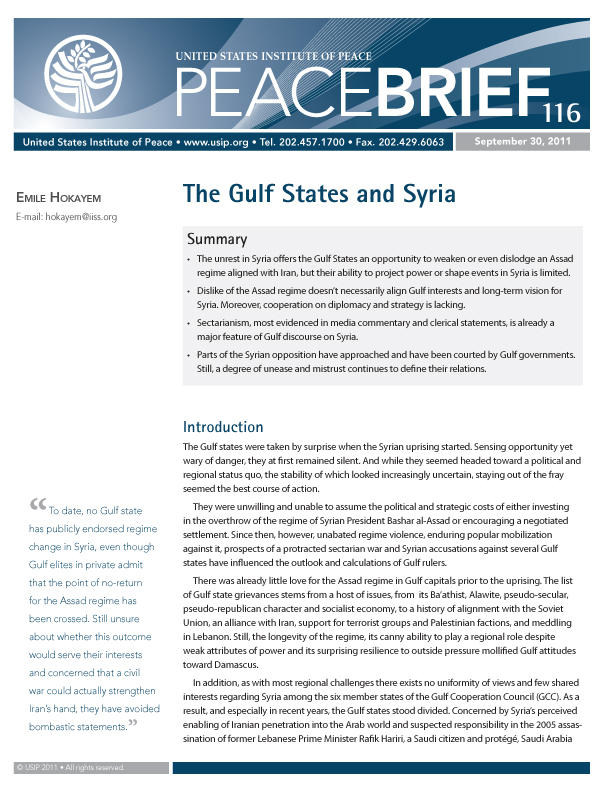The Gulf States and Syria
The brief examines the interests, connections and dimensions of Syria's popular uprising in the Arab Gulf states. Emile Hokayem is the Senior Fellow for Regional Security at the International Institute for Strategic Studies-Middle East based out of Mamana, Bahrain.

Summary
- The unrest in Syria offers the Gulf States an opportunity to weaken or even dislodge an Assad regime aligned with Iran, but their ability to project power or shape events in Syria is limited.
- Dislike of the Assad regime doesn’t necessarily align Gulf interests and long-term vision for Syria. Moreover, cooperation on diplomacy and strategy is lacking.
- Sectarianism, most evidenced in media commentary and clerical statements, is already a major feature of Gulf discourse on Syria.
- Parts of the Syrian opposition have approached and have been courted by Gulf governments. Still, a degree of unease and mistrust continues to define their relations.
About This Brief
This brief is part of a series examining the regional dimensions of Syria’s popular uprising. The Institute invited leading experts from the U.S. and the Middle East to identify the influence Syria’s neighbors are bringing to bear on the conflict, to forecast how the situation there will affect the regional balance of power, and to examine how the opposition and the Syrian regime are responding to these regional dynamics.
Through its work, the Institute aims to provide analysis and tools for on-the-ground conflict management in support of political transitions across the Arab world. The series was edited by USIP’s Steven Heydemann, senior adviser for Middle East Initiatives, and Scott Lasensky, a former senior program officer.
Emile Hokayem is the Senior Fellow for Regional Security at the International Institute for Strategic Studies-Middle East based out of Manama, Bahrain. He specializes in the security and the politics of the Gulf and the Levant.
Explore Further
- Turmoil in Syria: Reshaping the Middle East?
USIP publishes a series of briefs on how the Syrian uprising is affecting the regional neighborhood.



